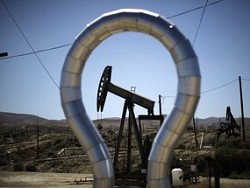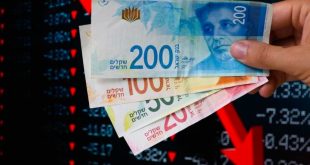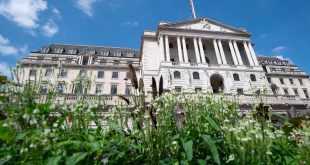
In June 2014, a barrel of Brent crude oil, the main varieties in the international oil markets, was $115. It’s been less than two years, and today its price is $45 or even less.
It is not surprising that such a collapse was a huge shock to Saudi Arabia and the oil sheikhs of the Persian Gulf. These countries receive approximately 85% of their income from oil.
However, as he writes in his article on Project Syndicate economist of the International financial center Dubai Dr. Nasser Saidi, the governments of these countries should realize that the current fall in prices, unlike previous ones, will not be temporary.
The “new normal” in oil prices reflects new realities: economic growth in China (and therefore oil demand) are reduced; in a world of growing energy efficiency (not least because of commitments made in December at the Paris conference on climate change); the revolutionary innovations sharply increased the competitiveness of shale oil and gas and renewable energy sources. Given the return of Iran, Libya and Iraq to the market as a major exporter, low oil prices have become inevitable, and in the long term.
Saudi Arabia and other Gulf countries should seize the opportunities afforded by this crisis. They have a great chance to hold, finally, a comprehensive economic reform.
The aim of these countries should become a new development model that will free them from dependence on hydrocarbons. Financial cushion, thanks to former accumulated oil revenues, is able to provide the six members of the cooperation Council for the Arab States of the Gulf (GCC) is a brief period of calm. However, they should use this window of opportunity to start structural reforms that are needed to ensure sustained economic growth, macroeconomic stability, efficient and balanced exploitation of oil and gas fields.
The necessary diversification of the economy, which can be achieved solely by reducing the size of state involvement in the economy and removing the obstacles to private sector development. Radical reform of the “kafala” (the regulation and monitoring of labour migrants) will allow to eliminate the main barrier to labour mobility. In addition, governments should establish a legal and regulatory framework necessary for privatization and the creation of public-private partnerships (PPPs). Unfortunately, at present, only Kuwait and Dubai ready for PPPs, and only Saudi Arabia intends to carry out privatization of airports (Jeddah and Dammam).
Privatization and creation of private-public partnerships in areas such as energy, infrastructure, health, education, transport, logistics, able to attract significant domestic and foreign investment. This could help the law to allow foreigners to fully own businesses.
Real property rights of aliens would create additional incentives to save and invest within the Gulf. Free trade zones in Dubai are the evidence of success that can be achieved through liberalization and elimination of barriers to foreign ownership and control.
Budget reform should also become one of the main priorities. Unreasonable government spending and subsidies reach about 8% of non-oil GDP (5% of total GDP) in GCC countries. Subsidization of prices on energy resources, so deeply rooted in the economy of the GCC countries, distorts patterns of consumption and production, conducts to the failure of the attempts of the authorities to diversify the economy and increases the negative effect of volatile world energy prices. The elimination of subsidies would not only stimulate investment in energy efficiency projects and solar energy, but will also bring significant benefits in the field of ecology and public health.
In addition, the introduction of effective, balanced pricing and public utilities, including water, electricity and transport, would allow the governments of the region to clear away the fiscal space to promote projects for the creation of jobs through schemes linking education and employment. Instead of a picture of crowding out the private sector by government spending, we could instead, see how the funds allocated to development to attract the private sector.
Another priority is to diversify fiscal revenues. The prevailing tax regime in the countries of the Persian Gulf is not suitable for this purpose. It is practically not possible to influence the behaviour of the private sector and excludes the possibility of conducting countercyclical fiscal policy. From 2012 to 2014 the non-oil tax revenues in GCC countries averaged only 1.6 per cent of GDP.
As a first step, the GCC countries are going to move to a new tax regime in early 2018. This includes value added tax, corporate tax, taxes on property, fuel, tobacco and alcohol. VAT at 5% will allow to collect the income at a moderate level of 1.5-2% of GDP.
But why not take the next step? The carbon tax rate of $0.52 per liter would allow Saudi Arabia to receive annually $50 billion, thereby significantly reducing the size of the forecast for this year’s budget deficit of $90 billion.
The third step of the GCC countries could begin to issue debt and sukuk (bonds under Sharia law) to Finance budget deficit and development projects and infrastructure investments. GCC countries have a low level of debt, and they can impose the budget with a moderate deficit without risk to budget stability. Meanwhile, the development of financial markets in the GCC countries would allow the private sector to take advantage of their abundant financial resources that are currently invested outside the region.
Finally, GCC countries need to welcome the idea of increasing exchange rate flexibility and monetary policy independence. Traditionally, the authorities of these countries expand spending during an economic boom and tightening their belts during the recession. Binding of their currencies to the US dollar exacerbates the procyclical model. Although the peg to the dollar increases the credibility of the currencies of the GCC countries, it does not allow for a real devaluation and does not reflect the profound structural changes in economic and financial relations of the GCC countries over the past three decades. First and foremost, this concerns the shift from the US and Europe to China and Asia.
The GCC countries should peg their currency to a basket of currencies that includes the dollar, Euro, yen and yuan. If you include in the basket the price of oil, currencies of the GCC countries could devalue after falling prices – and increase as they grow.
The final conclusion is that diversification of the economy, about which much is spoken but for which little is being done has become imperative for the oil countries of the Gulf. As they say, necessity is the mother of all inventions. And the GCC countries should assimilate.








